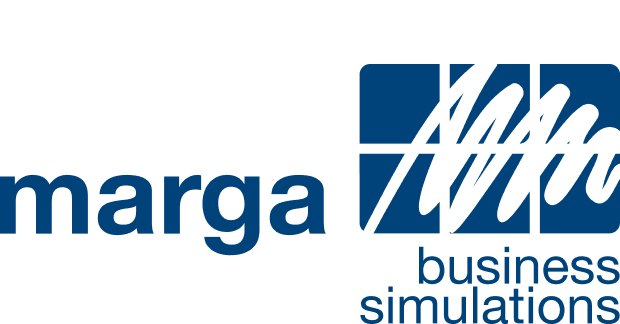Learning motivation in business games
The motivation of employees to learn plays a central role. Because those who learn with motivation and enthusiasm increase their learning success.

Game-based Learning: How to increase your employees’ motivation to learn
Constant employee development is becoming is becoming increasingly important for companies to remain competitive and keep pace with the latest developments. More and more companies are now using online training. The motivation of employees to learn plays a central role in this context. Because those who learn with motivation and enthusiasm increase their learning success. If this motivation is absent, content may not be internalized, and competencies may not be sufficiently developed. The desired learning effect is missing. Particularly in e-learning, learning success often fails due to a lack of motivation and interaction, as a high level of personal initiative is required online.

But how can a high motivation to learn be achieved?
Motivation can be both intrinsic and extrinsic. Extrinsic motivation to learn occurs when external incentives and rewards are provided that make learning desirable. More decisive, however, is often intrinsic motivation as a precondition for sustainable learning since this occurs from the inside. The learners have fun, interest in the learning contents and enjoy learning. They want to develop themselves, learn something new and challenge themselves.
It is therefore important to promote not only the extrinsic but also the intrinsic learning motivation of employees. This is precisely what game-based learning aims to do. Gamification is used in the field of teaching to convey knowledge in a playful manner. The transfer of playful elements into the learning process, ensures that learners learn more effectively and motivated by the additional fun factor. Abstract and rather dry topics are thus made much more interesting.
Hence, business games like MARGA, that are often web-based, are used in the field of management trainings. In the MARGA business game gamification is used to promote interactive and motivated learning in a competition. Learning should be fun and is much easier for most people under this aspect. The playful elements create a positive learning environment that makes learners more open to the content even in the online environment and at the same time more focused and interested in working.
In business games the learning motivation is promoted by various factors:
Learning-by-Doing is the learning principle on which the business game method is based. As team, participants lead their own virtual company. They develop strategies, make entrepreneurial decisions, and directly experience the consequences. To make well-founded decisions, they need management know-how. And exactly this makes the method so effectively: And that is exactly what makes this method so effective: It awakens the hunger for knowledge and fun in learning. Through the targeted and repeated application of the newly acquired knowledge in the game, contents are consolidated and remain in memory in the long term.
In business games, teams are usually in direct competition with other teams. The competitive situation has a strong motivational effect and ensures that the players keep at it and do not back down from challenges. Complex correlations are experienced emotionally and thus become tangible. Direct competition awakens ambition, generates enthusiasm and, after all, increases identification with one’s own virtual company. In this way not only the intrinsic but also the extrinsic motivation is promoted. Because every team wants to lead their company to success and emerge as the winning team. In the MARGA business game the win oft he MARGA award is an additional incentive.
Learning in business games is primarily self-directed. Business games are often web-based and can therefore be worked on independently of time and place. The independent development, application and repetition of content ensure that participants actively engage with the learning content. Over several game periods, participants can test, reflect, and repeat. In this way, content is linked in the long term and transfer to the reality is promoted.
A business game puts participants in operational decision-making situations in which they must find their role in the team and bring the team as a whole to its goal. The exchange and the assumption of responsibility in the group promote the motivation to learn. Successes and fun strengthen the team spirit. However, conflicts, disagreements and failures in competition are also part of the process and not only strengthen social skills such as the ability to criticize and deal with conflict, but also lead to a more intensive debate. Emotions have a positive effect on memory performance and ensure that learning content is remembered in the long term.
Business games offer the opportunity to make entrepreneurial decisions without taking any real risk. This takes away the fear of making the wrong decisions and encourages people to test themselves and take responsibility.
Motivation is the basis for learning success, and this is exactly where the MARGA business simulation sets in: improving individual management skills, growing together as a team, leaving the competition behind – and all this closely linked with a lot of fun in learning.
Are you interested in our business game?
Book a free consultation appointment now. We are always there for you personally and will be happy to advise you.





